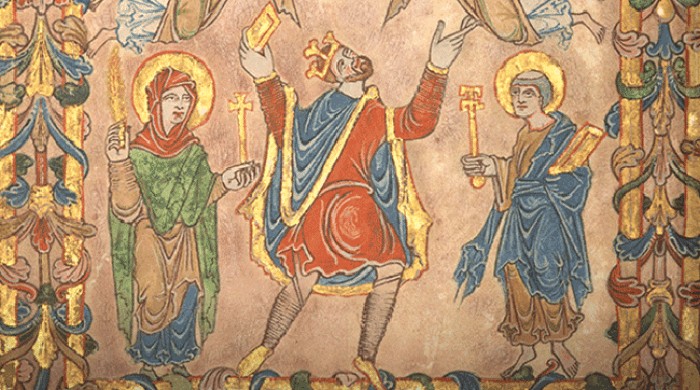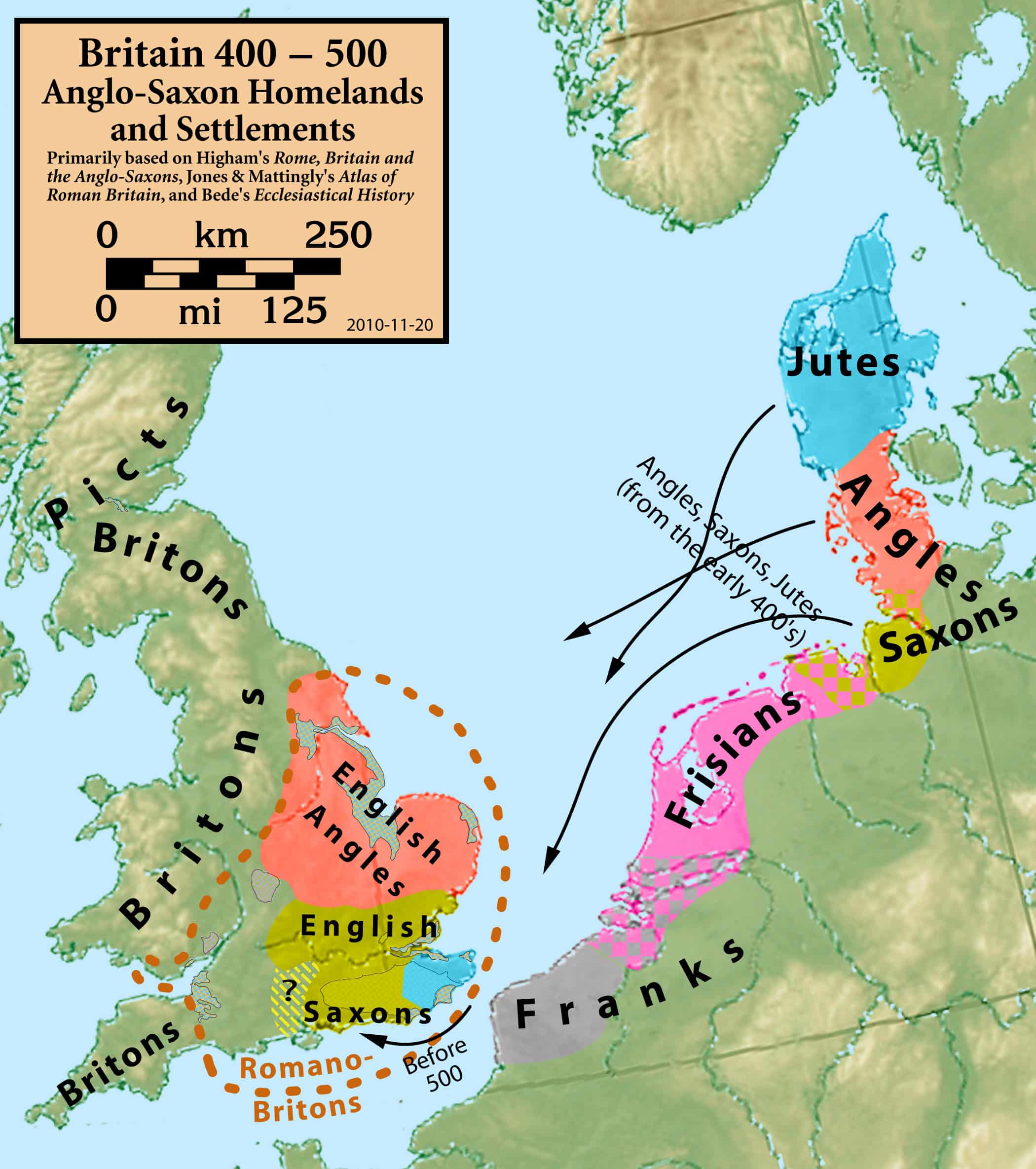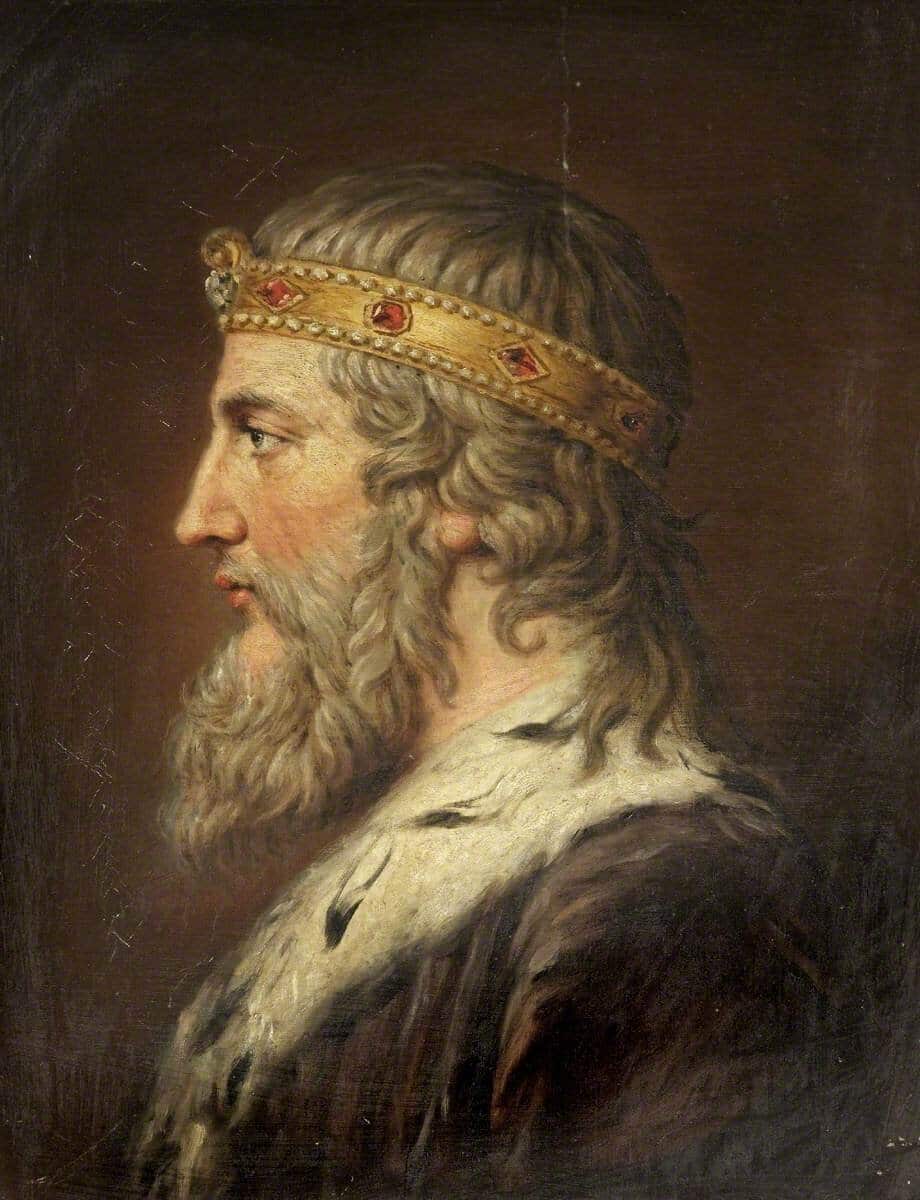The Anglo-Saxons appear in history after the Fall of Rome and the conquest of William the Conquerer.

While King Alfred the Great is often remembered, he had sons and grandsons who carried on his ideals and eventually unified England prior to the Norman conquest.
Jump to:
- Fact 1: Rome Occupation
- Fact 2: The Anglo-Saxons were made up of 3 Different Tribes
- Fact 3: The Anglo-Saxons were Originally Pagan until their conversion to Christianity under St. Augustine.
- Fact 4: There were 7 Kingdoms
- Fact 5: The Resistance of the Danes
- Fact 6: King Alfred the Great's Influence
- Conclusion
Fact 1: Rome Occupation
The first fact to understand when answering the question "Who Were the Anglo-Saxons?" is Rome's Occupation.
Rome invaded the land in AD 43 under Aulus Plautius. During their occupation, they used foederati to recruit men to swell the number of their army.
They recruited men by means of foederati from various tribes in Europe and used them to invade and defend what we know now as England.
These men would eventually become the Anglo-Saxons.
Fact 2: The Anglo-Saxons were made up of 3 Different Tribes

As one would guess, the name Anglo-Saxon implies that there were two different people groups that made up their nationality.
However, there were three.
The Anglos, Saxons, and Jutes each migrated to England, and eventually, they merged due to their similarities in language and culture.
Fact 3: The Anglo-Saxons were Originally Pagan until their conversion to Christianity under St. Augustine.

There were fewer men who were more influential in Christian theology than St. Augustine.
When the Anglo-Saxons arrived in England, they were primarily pagan, similar to the Danish.
However, an African missionary was sent to Kent to preach the gospel. With much hard work and sacrifice, St. Augustine led many Anglo-Saxons to Jesus, and they accepted Him as their Lord and Savior.
This unified the Anglo-Saxons in Britain under one religion. They became devout followers of Christ, as can be seen by King Alfred the Great.
This would also cause conflict between them and the Danes.
Fact 4: There were 7 Kingdoms
After the Fall of Rome, Europe was splintered, and England was no different.
The land of England was divided into 7 Primary Kingdoms:
- Wessex
- Mercia
- Northumbria
- East Anglia
- Essex
- Kent
- Sussex
The kingdoms would go back and forth with power, but all of them spoke the same language with different dialects. Eventually, they would begin to merge under King Alfred the Great.
Fact 5: The Resistance of the Danes
The Danes, what we know as Vikings, had control of England during different points in English history.
However, they were never able to conquer all of it, and while they certainly influenced the culture, they were unable to maintain control.
They were eventually driven out of England by the Anglo-Saxons.
This meant that the Danes would not conquer them, the Anglo-Saxons would maintain England, and they would create the culture and government.
Fact 6: King Alfred the Great's Influence

Until King Alfred, England was consistently embroiled in many wars against the Danes and each other.
Each kingdom had its own rule of law, ruler, and economy. However, during the reign of Alfred the Great, that changed.
King Alfred wanted to unite the kingdoms under one government and law. He believed that if they were united, it would drive the Danes out of England or force them to merge within the borders rather than fight them.
While his vision began during his reign, it was not realized until his children, grandchildren, and great-grandchildren came into power. They would continue with his vision, and through much fighting, invasion, recapturing, etc, they succeeded.
King Alfred spread the Anglo-Saxon Christian ideals across England, and they would take root rather than the pagan culture of the Danes.
His idea of government and the rule of law would influence England even after the conquest of the Normans under William the Conquerer.
Conclusion
This is a brief overview of the major events that influenced the Anglo-Saxons in England.
The Anglo-Saxons would go on the influence government, architecture, language, religion, law, and culture throughout England, even after the Norman conquest.
Men such as Thomas Jefferson and John Adams during the American Revolution cited their government as an influence on the Declaration of Independence.
While their name did not survive, and what we know of England now is due to William the Conquerer and the influence of the Normans, the Anglo-Saxons played a significant role in the development of Western Culture throughout the following centuries of their existence.
